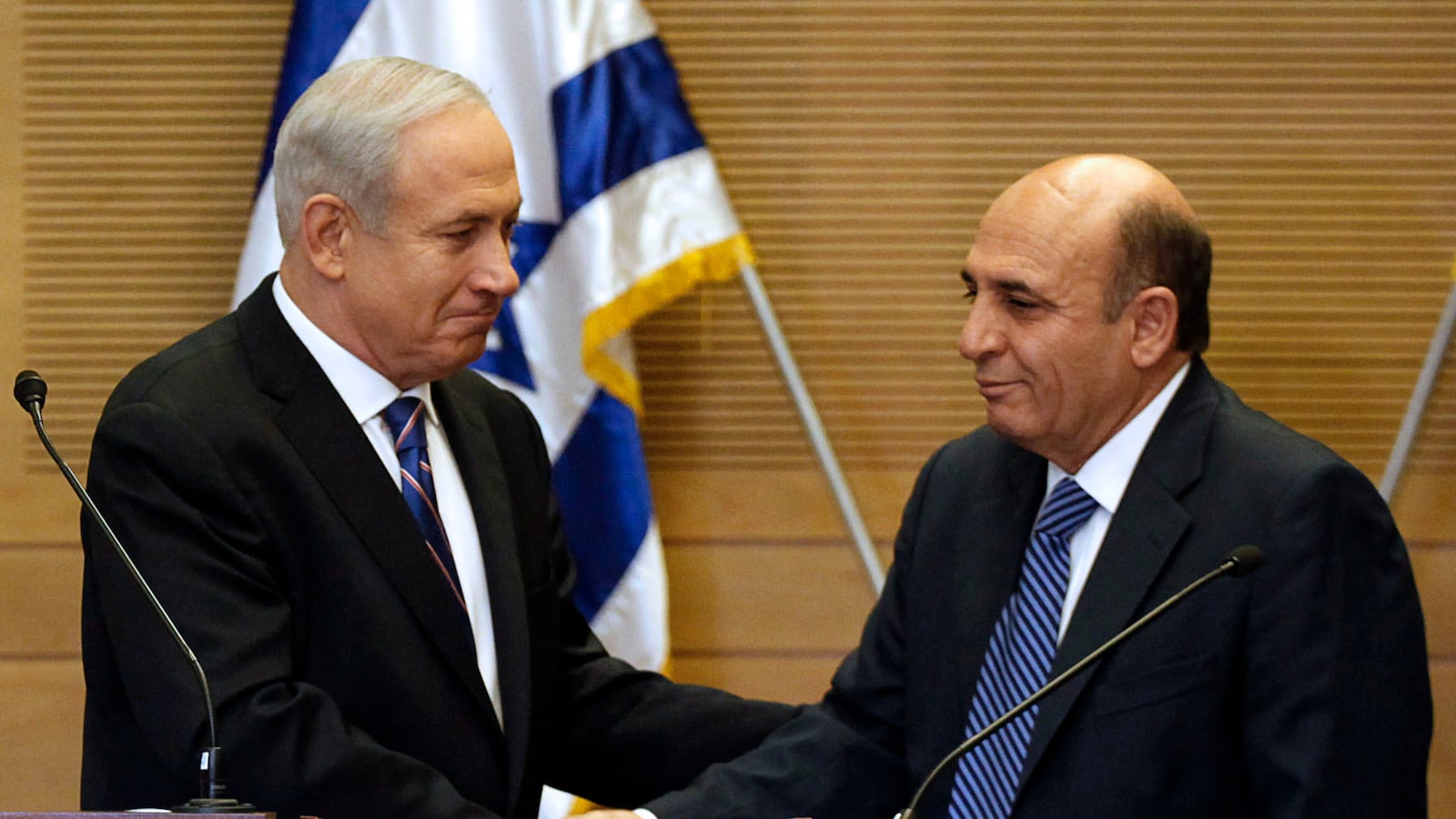Bibi Netanyahu is bringing Shaul Mofaz into a unity government? Wait—what?
During Mofaz's primary campaign, when asked if he would consider joining Bibi's government should he win, the Kadima leader was practically Shermanesque:
"No, Kadima under my leadership will remain in the opposition. The current government represents all that is wrong with Israel, I believe."

Mofaz hated Bibi's policies two months ago. He hated them yesterday. He hated his domestic policies and hated his foreign policies. He hated each iteration of his settlement policy and he unambiguously hated his new ultra-Orthodox policy.
But now Mofaz is ready to kiss, make up, and form a unity government? Could this mean Netanyahu is finally doing what he didn't do during his first prime ministership and didn't do in 2009: build a centrist coalition that empowers him to make a deal with the Palestinians? Perhaps, but Netanyahu's coalition is still filled with people hostile to a Palestinian state. As none other than Shaul Mofaz himself said recently, "Our government doesn't want an agreement and won't reach an agreement." What's more, the Palestinian leadership in the West Bank is weak and Obama administration has given up on the peace process until 2013 (if then).
The even bigger question, of course, is whether unity will portend not peace but war? After all, Mofaz knows war. He will be coming off a term as the Chairman of the Knesset's Foreign Affairs and Defense Committee, was the IDF Chief of Staff during the second Intifada, and served as Israel's Minister of Defense for four years. He is also—wait for it—Iranian-born.
Mofaz in the government doesn't obviate the enormous technical obstacles to an Israeli strike. Israel still lacks the B-52 bombers needed to drop the MOPs (massive ordinance penetrators) on Iran's underground Fordow nuclear facility.
But there are other options. Israel could use the smaller bunker-busters Obama gave it to knock out the mountain-side entrances to Fordow, which could delay the Iranian program for as long as it takes to rebuild its above-ground, less fortified facilities, and to dig out the entrances to Fordow. But that's not a very long delay.
The other, more likely option—as a secret Pentagon wargame reported by the New York Times suggested—is that Israel attacks first, and the U.S. gets dragged in to "finish the job." That might delay the Iranian nuclear program for up to five years rather than the one to three years bought by a solo Israeli attack.
It's all speculation, of course. But something remarkable has happened. Politically, the opposition to an Iranian strike is coming largely from the security professionals. When it comes to professional politicians, by contrast, Israel has virtually no opposition whatsoever on matters of war and peace. Is this the way a parliamentary democracy is supposed to work?




